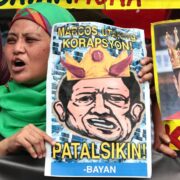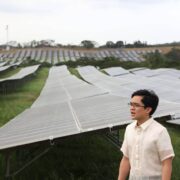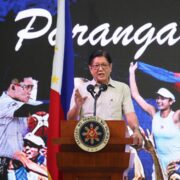The pursuit of change and the need for ‘matalinong pagboto’

The common tao had been longing for a meaningful change: a quality of life acquired not determined by luck, instant cash won from a television show, or by winning in the boxing arena.
Farmers continue to long for genuine agrarian reform so that they will be liberated from the bondage of century-old feudal relations that never of slaves while children of landlords were sent to school to become better managers of their family’s estates and landholdings. Workers at the very least long for a living wage; even the legal law only allows minimum wage. The gap between the family living wage (P1,223) and the minimum wage (P645) is so wide that we wonder how families survive.
In urban poor communities where trash and garbage coexist with dwellers, they could only long for secure housing and decent jobs for a decent life. These ordinary people are the same people who receive minimum wage and are trapped with poor and unkind transportation services. The children of the ordinary ones are sent to public schools; about 1,000 of them with no toilets and 1,500 with no electricity as of October 2024.
The poor are so blessed that they long for change. They dream of a better life – a roof over their heads, substantial food on the table, and quality education as well as scientific people-oriented, liberating culture, clothing, leisure and weekend rest, health care, and a friendly neighborhood.
The trapos (traditional politicians) and the elite do not share their dreams with them. They have no desire to change the situation of the poor. Because to fulfill the dreams of the poor there must be social justice—the just distribution of wealth and services.
The 1987 Constitution provided a party list system to give representation and voice to unrepresented sectors like labor, women, the urban poor, indigenous people, and youth. In 2013, the Supreme Court ruled that party list system is open to any kind of groups and parties and not exclusive to the marginalized. Recently Kontra Daya, reported that 55 percent of party list groups have connections to political dynasties, big businesses, police and military, corruption, and dubious advocacy.
Election time is an opportunity to expose the limits of these groups and encourage the electorate for a participatory democratic election. The “matalinong pagboto” (wise vote) does not begin and end during the election period. The matalinong pagboto is shaking the foundation of exploitation, bureaucrat capitalism, and elite domination.
DSS. NORMA DOLLAGA,
kasimbayan@yahoo.com.ph

















